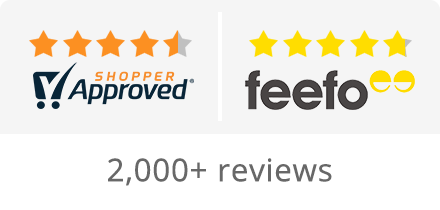
Interest Only vs Repayment mortgages
Straightforward answers to our customers most frequently asked mortgage & remortgage questions
- home /
- frequently asked questions /
- mortgages /
- interest only vs repayment mortgage

Posted by Richard Norman
If you've got more questions or you simply want some financial advice, please fill out our quick enquiry form or give us a call on 02382 353 001.
What are the different repayment methods?
The repayment method is the way in which you will pay back the mortgage borrowing to the lender. There are 3 repayment types available, repayment, interest only and split repayment.
-
Repayment mortgage
This repayment method means that you are repaying both the capital and the interest of the mortgage with each monthly payment.
Provided you make all of your payments in full and on time, you will have repaid both the capital and interest in full over the term so that at the end of the mortgage term there is a zero balance on the mortgage and you will own the property outright.
Most lenders offer this repayment method as standard on a residential mortgage without any further application requirements. The monthly payments on this repayment method are higher than both interest only and split repayment methods.
"This repayment method guarantees that the mortgage will be repaid over the term." -
Interest Only
This is where you are only repaying the monthly interest of the mortgage with each monthly payment. Provided you make all your payments in full and on time, your mortgage balance will always be the same.
"At the end of the term of an interest-only mortgage, you'll need to repay the lender the original balance in full."It is important that you have a means to repay the lender the original mortgage borrowing at the end of the term and that you regularly review this to ensure that your repayment plan is on target to repay the mortgage at the end of the term. It is your responsibility to ensure that the mortgage is repaid at the end of the term, failure to do so could result in the lender taking possession of the property so that they can sell it and reclaim their money.
As the monthly repayments are interest only, the monthly repayments will be lower than a repayment method.
Not all lenders will lend on an interest only method, the lenders that do have their own eligibility criteria that you will need to meet in order to qualify for an interest only mortgage.
-
Split repayment
A split repayment method is when a mortgage is split into two elements and combines both of the above repayment methods. One element of the mortgage is on a repayment method and the other element is on an interest only method with the monthly payments for each element combined for one monthly repayment. The product will be the same for both elements of the borrowing.
For example Mr X has a £200,000 mortgage. He has savings of £50,000 which he wants to use to repay an element of the mortgage at the end of term so he has a split repayment mortgage with £50,000 on an interest only method and the remaining £150,000 on a repayment method.
"The monthly repayments on a split repayment mortgage will be less than a repayment method mortgage and more than an interest only mortgage."Not all lenders offer split repayment mortgages. You must ensure that you have a means to repay the interest only element of the borrowing at the end of the term and this will need to evidenced and acceptable to the lender during the application.
How do you repay an interest only mortgage?
There are many ways in which someone could repay the balance of an interest only mortgage at the end of the term and this is known as the 'repayment vehicle'. A combination of repayment vehicles can be used to repay the interest only element of a mortgage.
Every lender has their own criteria for acceptable methods of repayment and any repayment vehicle used will need to be evidenced to the lender and acceptable to them before an interest only mortgage is approved.
Here are some common repayment vehicles used to repay the interest only element of a mortgage:
-
Downsizing
This means the property the mortgage is secured on will be sold before the end of the term and the proceeds of the sale used to repay the mortgage in full and then any surplus funds used to buy a smaller property.
-
Sale of another property
For example, a Buy-to-Let that has enough equity to repay the mortgage balance.
-
Savings, investments or a pension
this when cash tied up in other forms such as an ISA, Stocks & Shares or a Pension Fund are then called upon to repay the mortgage.
This list is not exhaustive and not all of the above repayment vehicles will be acceptable to all interest only lenders so it is important to know if you qualify for the borrowing before any unnecessary application forms or credit checks are carried out.
